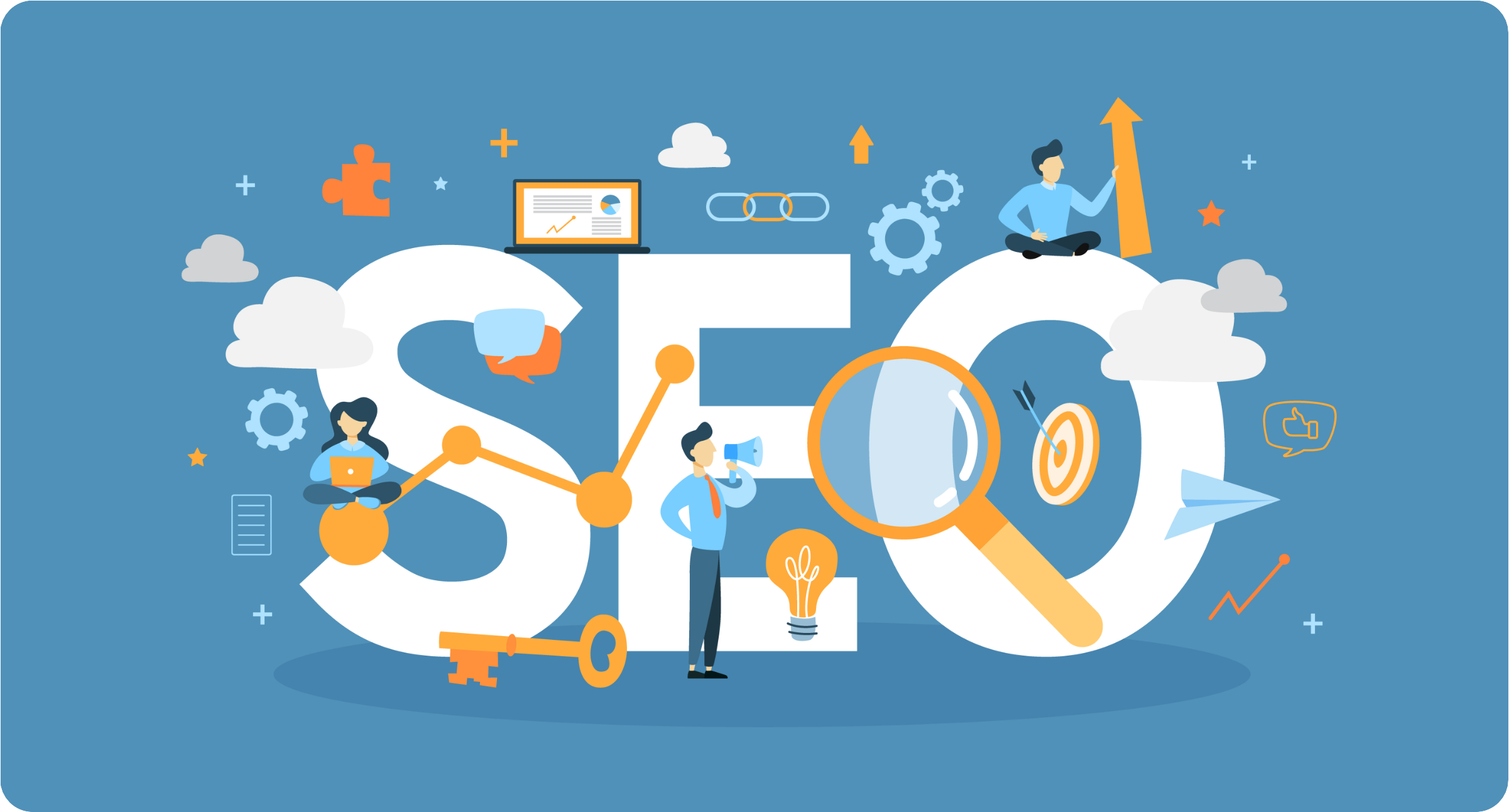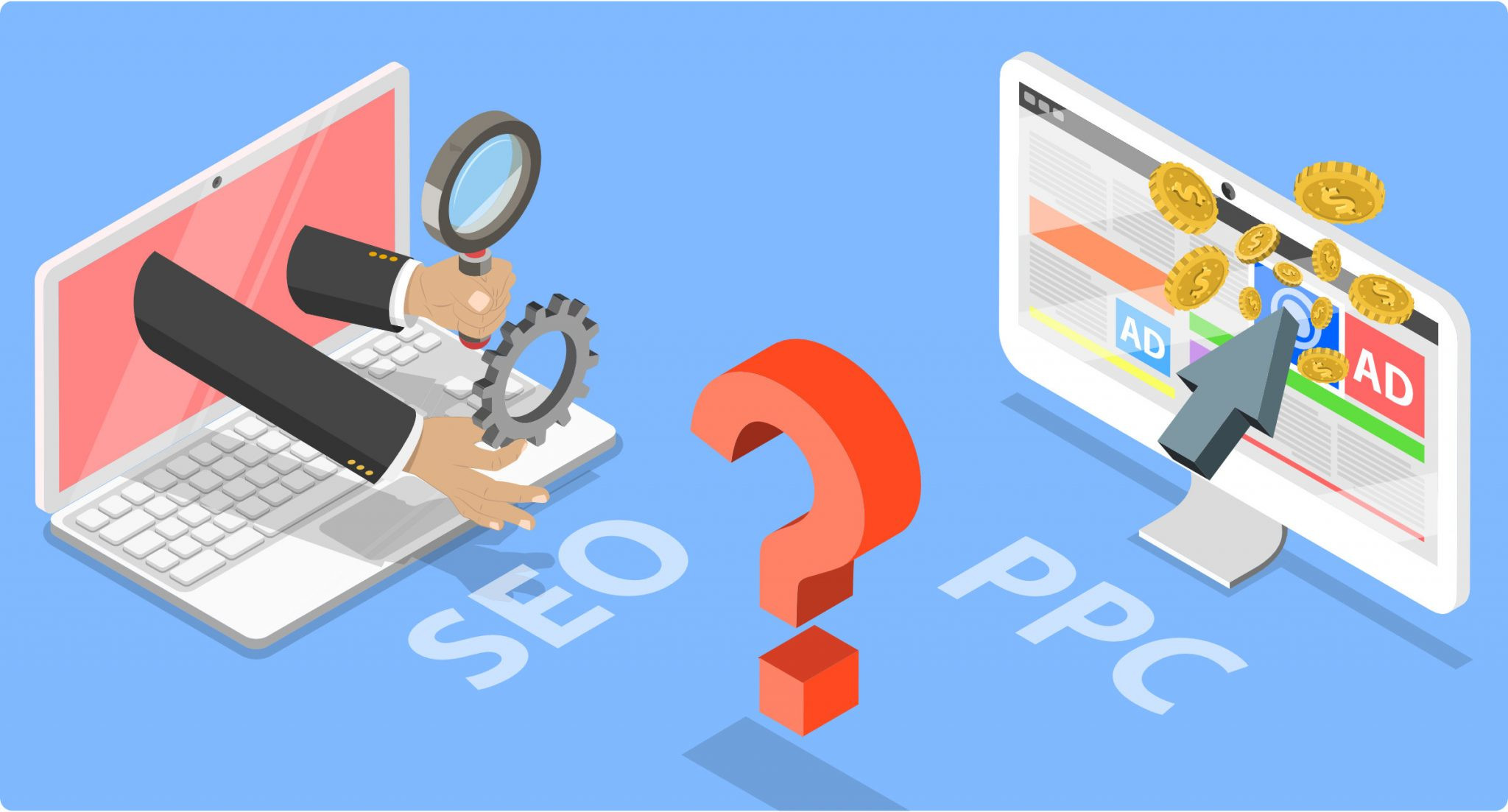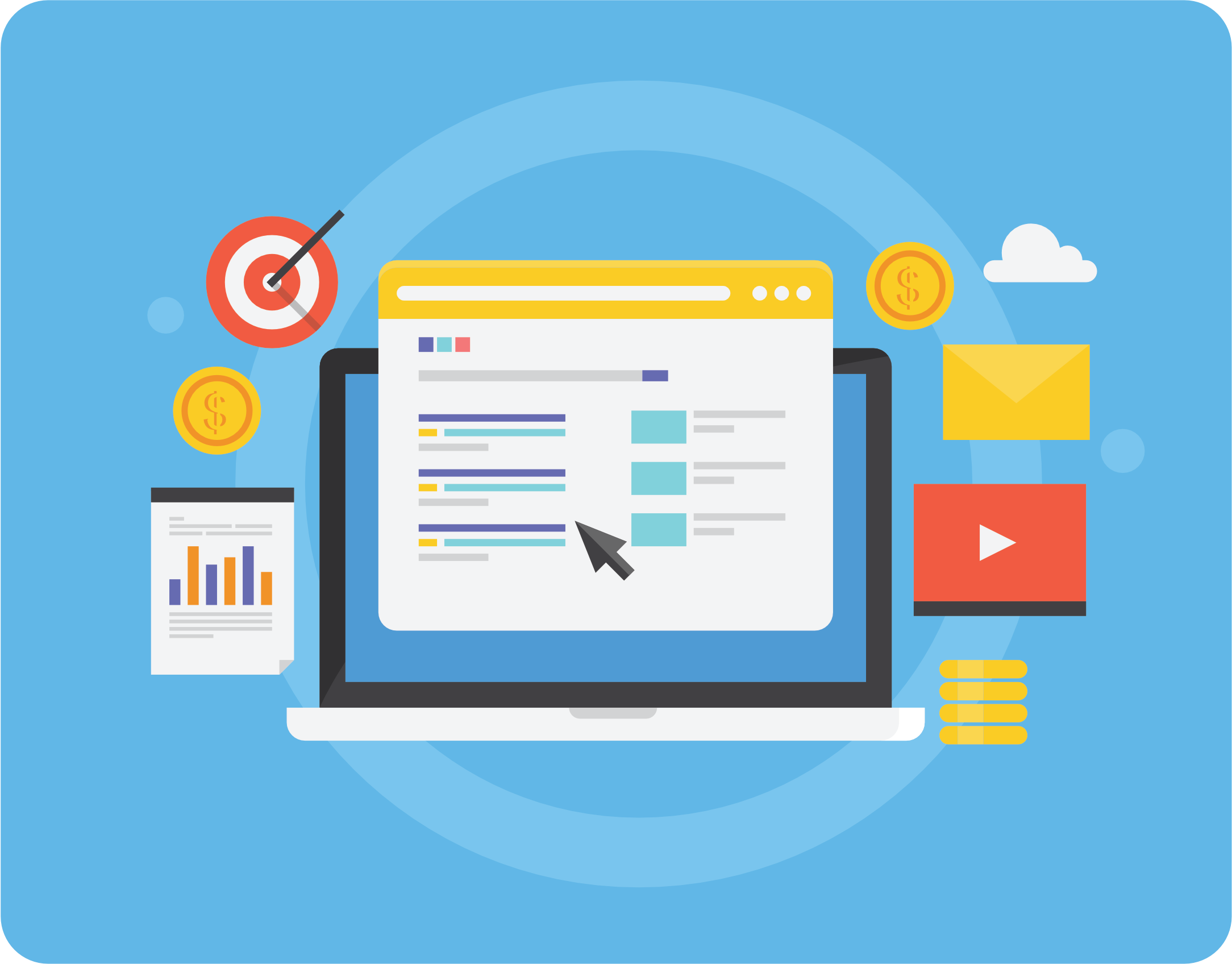Your Online Marketing Glossary: SEO Acronyms

When it comes to the world of online marketing, there is a lot to take in and we’ll be the first to admit it.
There’s a fair amount of industry-specific terminology that you might not be familiar with, and while you are still getting to grips with the basics, you can go from being a local business to one that is competing with household names for search traffic overnight. For this reason, it’s important for you to understand exactly what’s going on.
From the technical jargon and abbreviations that get thrown around through to the ever-changing, constant updates from Google, we’re going to give you the low down – and deliver the information that you really need to know.
Abbreviations and Acronyms
All of the below acronyms are used so often and so easily by those working in the online marketing world that it can sometimes be a little difficult to keep up, whether you’re new to SEO or not. To keep it simple for you, we’ve got an overview of what these terms mean – and then we’ll explain exactly why they’re important.
This encompasses the work that can be done to, on, and off a website to make it easier to find on search engines. The rankings you hold within the search engine results are largely as a result of this.
Why it’s important: Without SEO, it can be hard to find the visibility you need to succeed online, especially within a crowded market.
Where SEO helps to improve your visibility within search results naturally, PPC allows you to bid on keywords and appear right at the top of search results. You pay for every click you receive.
Why it’s important: Sometimes, you need to make conversions, and quickly. This is your best bet for a short-term influx.
Also known as digital or online marketing, this refers to all the methods of improving the online presence of a website, including both SEO and PPC, but is often primarily focused around paid avenues.
Why it’s important: When looking to improve visibility and increase traffic to your website, a search engine marketing strategy is key to making it a success.
Anything on a web page that prompts you to do something is a call to action. This could be a button that says, “Call Now” or “Sign up to Newsletter”, or a link to contact information.
Why it’s important: Having the right CTA on your website can be the difference between a potential lead and a conversion.
When you type a phrase into Google, there are usually ten standard organic listings per page. There can also be paid ads, localised results and map results, too. Each of these pages is known as a SERP.
Why it’s important: Understanding where you are ranking in search results is pivotal for assessing the success of your online marketing efforts.
A content management system is usually the platform your website is built on – such as WordPress. This gives you an easy way to manage and update your website and blog regardless of how tech-savvy you are.
Why it’s important: A good CMS makes the management of your site as simple as possible and gives you the chance to introduce basic SEO tools, too.
When you type a phrase into Google, there are usually ten standard organic listings per page. There can also be paid ads, localised results and map results, too. Each of these pages is known as a SERP.
Why it’s important: Understanding where you are ranking in search results is pivotal for assessing the success of your online marketing efforts.
If your end goal is to increase revenue or enquiries, then CRO is the ways in which you can improve your website or ads to encourage a user to make a purchase or submit an enquiry.
Why it’s important: Not everyone is sure that they want to commit to a purchase or enquire for more information. With the right CRO, you are more likely to push visitors over the line, making your business more efficient and profitable.
User experience is about understanding how a visitor will interact with and navigate your website and is widely used in conjunction with enhancing your site to match a user’s needs.
Why it’s important: By tailoring your site around the overall user experience, you are better understanding their needs – and fulfilling them.
Understanding Online Marketing
Hopefully, this gives you a better understanding of online marketing, and how it will help you achieve your goals. While there are many other acronyms and abbreviations in use, these are the main ones that you are likely to come across – and knowledge is power!
If there’s anything else you have come across that you’d like to understand in more detail, please do not hesitate to contact us and we’ll be more than happy to help.
SEO vs PPC – What You Really Need to Know

When you are first starting out with online marketing, it’s important to understand which elements will be right to meet your business goals.
The two primary options you will be facing are Search Engine Marketing (SEO) and Pay-Per-Click (PPC) advertising - but you won’t always need both. We’re going to run you through the basics to help you determine which route is right for you. If you need more information, though, or have any questions at all, please contact us today for a chat.
If you’re not yet familiar with the terminology that gets used in the world of online marketing, check out our SEO Acronym Glossary before we move onto the real debate: SEO vs PPC.
What is SEO?
Search engine optimisation is all about improving the visibility of your website within Google search results. Whilst other search engines are available, Google is the biggest and their guidelines dictate a lot of what happens in online marketing.
Doing SEO for your website is often referred to as organic, as the work is done has an indirect impact on your overall visibility on Google. Technical improvements, the addition of optimised content, link acquisition and building your authority and industry relevance are the fundamentals of organic SEO, but that’s not to say that this can be complemented by paid exposure through PPC, too.
In order to succeed with SEO, it’s vital you have a strategy that is tailored to your specific needs. There is no one size fits all solution so it’s important to get this right, whether you do it yourself or outsource to an expert.


What is PPC?
Pay per click is one of the most common methods of paid advertising in online marketing. Both SEO and PPC are highly effective at getting traffic to your site and boosting conversions – and subsequently enquiries or revenue – but when it comes to PPC, the difference is that you pay for the traffic you receive.
The success of your PPC campaign will largely be dependent on the keywords that you target, the level of competition for these phrases and your budget.
SEO or PPC / SEO & PPC
While the two have many differences in how they are carried out, the good news is that you don’t always have to choose between SEO and PPC. There are many times when SEO and paid advertising can work hand in hand to really enhance your visibility, especially if you are looking for some big results in the short-term. That being said, sometimes less is more!
SEO – The Pros and Cons
When it comes to the benefits of SEO, there is a lot that it can do for your business:
- Relatively low cost - compared to paid advertising, the monthly fee for SEO pays for itself, and once the effects take hold, they won’t just disappear
- Increased traffic – Utilising SEO is the best way to improve SERP listings. In turn, this drives more traffic to your site - and more traffic means more conversions
- Increased brand credibility – the public trust Google and their judgement of your site, i.e. your positioning in search results, can do a lot for your brand
- Improved conversions – websites that have been optimised for SEO purposes are often fast to load, easy to read, easy to navigate and are designed to make the conversion funnel work
- Long term results – compared to paid ads, your traffic won’t dry up when you stop investing. Good SEO doesn’t disappear overnight!
- Your competitors are doing it – if your competitors are ranking in SERP listings for phrases in your industry, you can’t hope to compete with them unless you get in the ring
- You get a better understanding of your customer – understanding what they want, what they’re looking for, and importantly what they aren’t looking for, allows you to adapt to consumer trends before they impact your business in a detrimental way
- Ultimately, utilising SEO on your website makes it more user-friendly – and it's your customers that matter most!
The Cons;
- Google holds the power – ultimately, as the biggest search engine in the world wide web, Google is in control. By working in line with their recommendations, though, you will be putting yourself in the best position possible
- Results aren’t instant - good SEO takes time, knowledge and skill to implement; it is a long term investment in your business
- Competitors can see what you’re doing – other businesses, including your competitors who are using SEO, will be able to see what you’re doing and may even copy your approach – this is why it is important to have a strategy tailored to your own needs as what works for one business won’t always work for another
- Not all marketing agencies adopt the ‘white-hat’ approach – when we say ‘good SEO’ we mean white-hat or by the book search engine optimisation. Many companies still utilise ‘black-hat’ techniques which can potentially lead to a penalty from Google, so choosing who you work with is important to your success
- Results aren’t guaranteed – all businesses want to appear on page one of Google search results, as these are the positions that will drive traffic to your site, but the algorithms that Google implement are ever-changing and nobody knows all the factors they consider when choosing where to rank your site
PPC – The Pros and Cons
While SEO offers long term results, there are certainly a lot of benefits that PPC can offer your business, too:
- Brand exposure – PPC adverts allow you to put yourself in front of an audience that may not otherwise know who you are
- Instant Results – unlike SEO which can take time to get organic results, PPC can get you in front of your target audience who are looking to spend money in a matter of hours. This can be very appealing for short term gains
- Pay for clicks - while it can be an expensive way to get traffic, ultimately, you only pay for clicks on your ads, and a click is a very good indication that a user is interested in your offering
- Budget accordingly – You are in control of your daily, weekly, and monthly budget, so you don’t need to spend a lot to make money, depending on your industry and the level of competition for key phrases
- Direct, targeted advertising – PPC allows you to target a very specific niche of people with exactly what they are looking for, the minute they are searching for it. The ability to choose your audience will typically lead to a much higher conversion rate, especially for e-commerce sites
- Optimal positioning on SERPs – Google Ads appear above organic search listings in SERP results, and PPC allows you to bid on positions on this page. Put simply, the bigger your budget, the more likely you are to appear higher up on listings
- Measuring ROI – your AdWords account gives you a plethora of meaningful data to really help you analyse your return on investment. You can measure impressions and clicks on your ads and compare to sales and revenue made to determine how successful your ad campaign is
The Cons;
- The process can be complicated and technical – a lot of work can be required to set up a campaign that is successful, and if you aren’t sure what you’re doing, it can be easy to waste your budget
- It can be costly – in some industries, the keywords you will want to target are expensive in the world of PPC so if your campaign isn’t performing as expected, it is easy to spend more than you make
- Short term results – traffic generated through PPC is not permanent, and, unlike SEO, the minute you stop investing, your traffic will dry up
- Time-consuming to set up and maintain – it can be easy to make money through PPC, but the effort required to set up your campaign(s), analyse the data and optimise to ensure they perform as well as they can does take time
- High level of competition – due to the nature of paid advertising, there is a lot of competition for the positions that matter
- No guaranteed purchases – ads are a great way to get you in front of the audience you want, but there is no guarantee of a sale. Users might be researching or simply haven’t found what they’re looking for
- People are more trusting of organic listings – although trends will vary, the majority of users on the internet are more likely to trust organic listings over paid ads, for a number of reasons including that organic results are more relevant, trustworthy businesses and have earned their position in results
Over to you...
With knowledge comes power; the more you know about the world of online marketing, the easier it is to decide which route is best for you. This might be SEO on its own to help build your authority and organic search results, PPC to complement your existing organic results, or a combination of both to really give your business the push it needs.
If you’re ready to take the next step in figuring out what is right for your business and how to go about achieving your goals, then get in touch with our team to get started!
- 01733 890836
- Monday - Friday 9am-6pm
- hello@siteminders.co.uk
- Information, Support, Enquiries
- Made in Peterborough
- 2 Flag Business Exchange, Peterborough, United Kingdom


